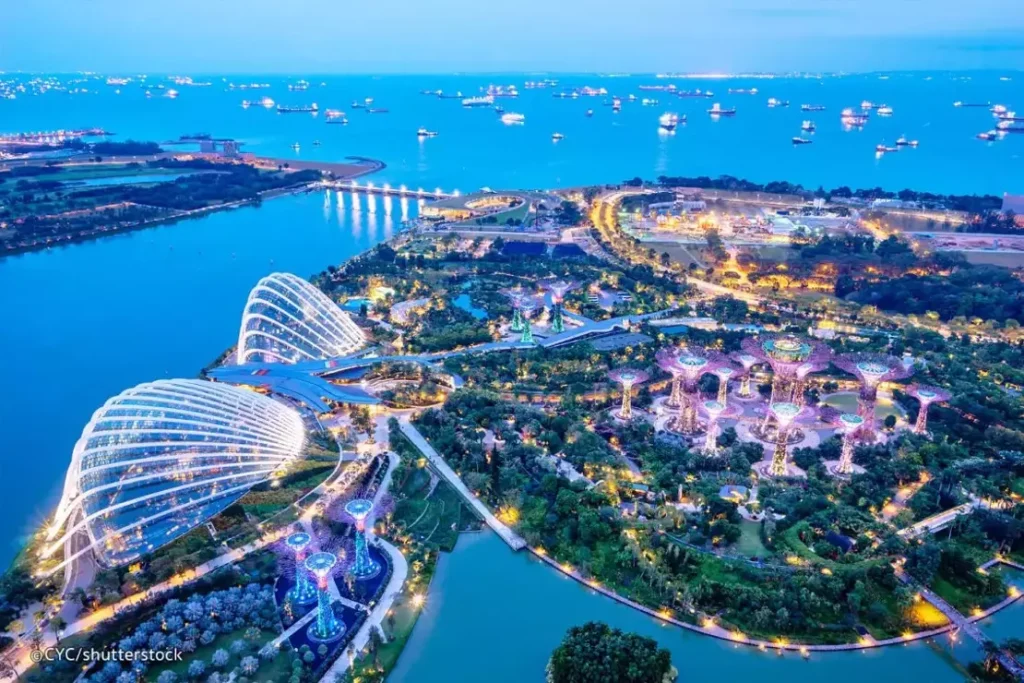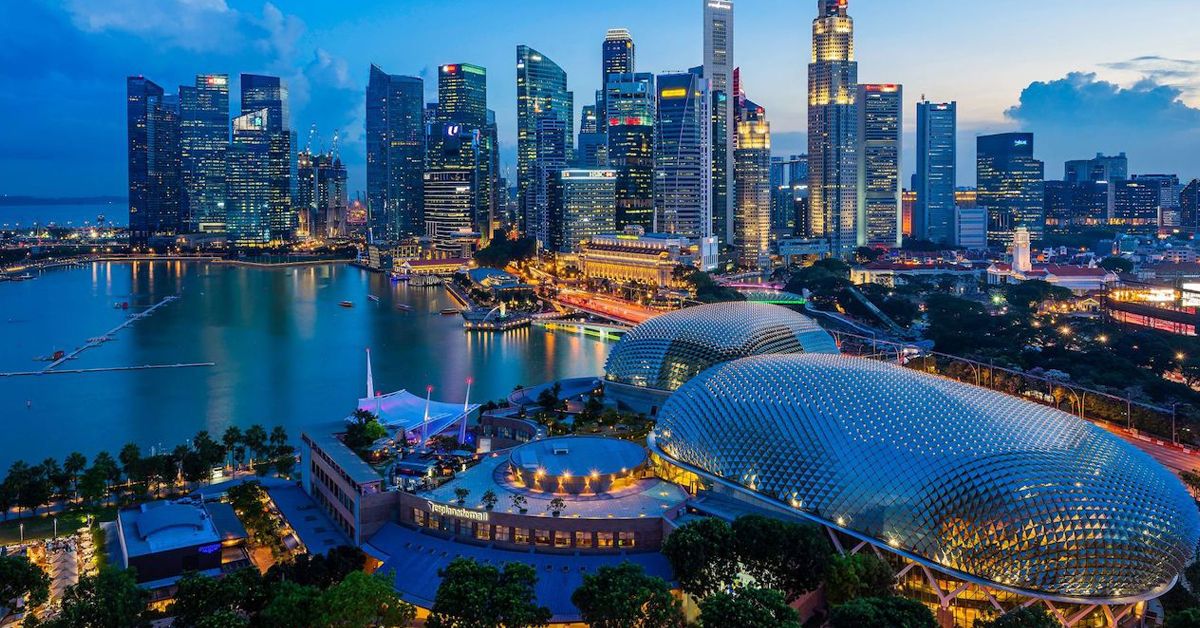Everything You Need to Know About Living in Singapore
Nestled in the heart of Southeast Asia, Singapore is a thriving city-state known for its impressive modern architecture, multicultural community, and robust economy. As a hub for technology, commerce, and logistics, Singapore offers a diverse and dynamic lifestyle. In this comprehensive guide, we explore everything you need to know about living in Singapore, including the cost of living, working and settling in, and the unique aspects of this vibrant nation. Here are the main topics we’ll cover:
- What is life like in Singapore?
- Opportunities for settling and working in Singapore
- Fascinating facts about Singapore
- Cost of living in Singapore

Whether you’re planning to move to Singapore or simply want to learn more about the quality of life there, this guide will provide you with all the details you need to make an informed decision.
Overview of Life in Singapore
Despite being a small island nation in terms of land area, Singapore is an excellent blend of nature and contemporary city life. The city’s skyline is dominated by high-rise buildings, yet it’s also enveloped by green spaces, which give it a unique charm. Singapore is widely regarded as one of the most livable cities in the world, characterized by its clean streets, strict regulations, and advanced infrastructure. In the United Nations Human Development Index, Singapore ranks 11th globally, reflecting its exceptional quality of life. Moreover, according to the World Happiness Report, Singapore is placed at 32nd, highlighting the overall satisfaction of its residents.
Singapore’s multicultural makeup is another aspect that makes it stand out. The city-state is home to people from all over the world, and it has four official languages: English, Malay, Tamil, and Mandarin. This diverse linguistic landscape makes it easy for expatriates to adapt and communicate. Below, we’ll explore different aspects of life in Singapore, including settling, working, and the overall lifestyle.
Moving to Singapore: Settling and Residency Options
People move to Singapore for various reasons, including marriage, career opportunities, or education. Singapore offers high-quality educational institutions and a wide range of job opportunities, making it an attractive destination for both students and professionals. For those considering higher education, Singapore boasts several English-medium universities that hold prominent global rankings. For example, the National University of Singapore (NUS) is ranked 11th globally, while Nanyang Technological University (NTU) is ranked 12th in the QS World University Rankings. These universities provide excellent academic programs and offer opportunities for students to work closely with industry partners through internships and job placements.
For professionals, Singapore is welcoming to both highly-skilled and semi-skilled workers. The country has various types of work permits and passes depending on the skill level of applicants. If you are looking to invest in Singapore, there are also special residency options available. Below, we take a deeper look into different pathways for settling in Singapore.
Requirements for Moving to Singapore
If you are planning to visit Singapore as a tourist, you need a visa and a passport valid for at least six months. However, different requirements apply if you wish to work or study in Singapore.
Student Visas
Students looking to study in Singapore need a student visa, which is typically issued after they receive an acceptance letter from a recognized educational institution. Required documents include:
- Acceptance letter from the university
- Passport details
- Personal identification details
- Singapore address and contact information
- Biometric photograph
- Credit card or online banking details for visa fee
- Health insurance and vaccination records (such as Yellow Fever, COVID-19)
Work Permits
If you wish to work in Singapore, the type of permit you need depends on your qualifications and the type of work you plan to do. For instance, semi-skilled workers may apply for an S Pass, while skilled professionals can apply for an Employment Pass. Investors planning to start or expand their business can also qualify for special residency permits.
Fascinating Facts About Singapore
Singapore’s distinctive character goes beyond its skyscrapers and impressive infrastructure. It is also known for its low crime rates, strict rules, and strong emphasis on cleanliness and order. The city enforces a wide range of unique laws to maintain order, such as prohibiting chewing gum in public areas. The reason behind this ban is to keep public spaces clean and prevent vandalism. Similarly, motor vehicle ownership is highly regulated to prevent traffic congestion—the government imposes heavy taxes on car ownership to maintain manageable levels of road traffic.
Here are some interesting facts about Singapore:
- Strict Cleanliness Rules: Littering is strictly forbidden, and violators face heavy fines. The city places immense importance on maintaining a clean environment.
- Unique Traffic Management: Unlike many countries, Singapore drives on the left side of the road. Owning a car is very costly due to high Certificate of Entitlement (COE) fees, which helps to keep traffic under control.
- Multicultural Festivities: Singapore is a multicultural hub, and this diversity is celebrated through festivals from different cultures, including Chinese New Year, Hari Raya, Deepavali, and Christmas. Living in Singapore means experiencing a rich tapestry of cultural events.
Cost of Living in Singapore
Singapore is often listed as one of the world’s most expensive cities. The cost of living, including everyday expenses, housing, and transportation, is relatively high compared to other parts of Southeast Asia. According to the Mercer Cost of Living Survey, Singapore ranks 7th in the world, indicating that residents must plan their expenses wisely to maintain a comfortable lifestyle.
Everyday Expenses
Grocery prices are on the higher side in Singapore. Here are some average costs for basic items (as of October 2021, based on data from Numbeo):
| Product | Price (SGD) |
|---|---|
| Milk (1 liter) | 3.6 |
| Bread (500g) | 2.4 |
| Cheese (1 kg) | 26 |
| Chicken (1 kg) | 11.1 |
| Tomatoes (1 kg) | 2.7 |
Housing Costs
Housing is another major expense in Singapore, with rents varying greatly based on the location and size of the accommodation. Here are some typical rental costs:
| Type of Apartment | Average Monthly Rent (SGD) |
| High-end area, 85m² furnished apartment | 4,631 |
| Average area, 45m² furnished studio | 2,018 |
With the average net monthly salary after taxes being around 5,520 SGD, maintaining a comfortable standard of living can be challenging without proper financial planning.
Tips for Living in Singapore
While Singapore offers a high standard of living, it comes with a hefty price tag. Here are some tips to make your experience enjoyable and manageable:
- Budget Carefully: With the high cost of living, it’s essential to create a realistic budget. Prioritize spending on necessities like rent and groceries.
- Explore Local Food: Eating out at fancy restaurants can quickly become expensive. To save money, consider dining at local hawker centers, which offer delicious meals at very reasonable prices.
- Use Public Transport: Singapore’s public transportation system is clean, efficient, and affordable. By using public transport instead of owning a car, you can save a significant amount of money.
- Stay Informed on Rules: Singapore has numerous regulations that must be respected to avoid fines or penalties. Make sure to understand the local laws, such as restrictions on smoking in public places and the rules regarding waste disposal.
Conclusion: Is Singapore the Right Place for You?
Singapore is an enticing destination, offering incredible quality of life, modern amenities, and economic opportunities. Its strict regulations ensure that the city remains clean, efficient, and orderly, but these same regulations can be challenging for some individuals. While the high cost of living may require careful budgeting, the economic benefits, cultural diversity, and exceptional quality of life make it a desirable place to live.
If you’re considering moving to Singapore, weigh the pros and cons based on your lifestyle and financial situation. For those with the means and a desire to experience a multicultural, efficient, and vibrant environment, Singapore could be an excellent choice.
Interested in learning more about life in Singapore or other destinations in Southeast Asia? Check out our related articles on expat living, budgeting tips, and the best places to explore in the region.

